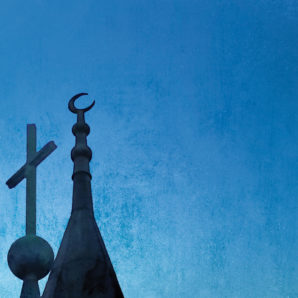Religious Expression or Female Oppression?
Series: Burqa Ban
In the wake of France’s total ban on the burqa or full-length veil, which took effect last month, on April 11th, it is an appropriate time to address the Islamic interpretation of the headscarf and its significance for Muslims. Scholars of religion inevitably get nervous when they are asked to speak about “the” interpretation of anything. So I propose to draw on my personal experience as a Muslim and as an observer of Western politics and society to establish some context that may lead us to be more aware of certain uncritical areas in our framing of the question at hand.
Read More →
In the wake of France’s total ban on the burqa or full-length veil, which took effect last month, on April 11th, it is an appropriate time to address the Islamic interpretation of the headscarf and its significance for Muslims. Scholars of religion inevitably get nervous when they are asked to speak about “the” interpretation of anything. So I propose to draw on my personal experience as a Muslim and as an observer of Western politics and society to establish some context that may lead us to be more aware of certain uncritical areas in our framing of the question at hand.
Read More →
